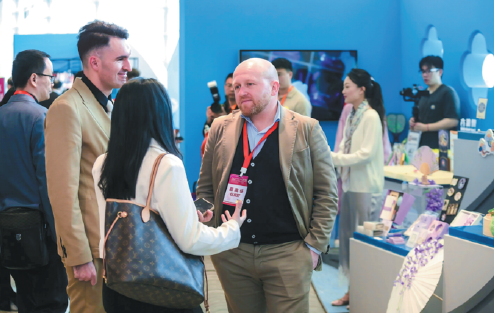Breaking The Silence

Hello, Mr. President
At different points, I’ve worked with 30 Fortune 100 CEOs. I believe 90% of them wake up in the morning, look in the mirror, and think, “Hello, Mr. President.” These are talented, confident, tall (we’re a highly looksist nation) people, who surround themselves with supporters who are damn impressed with their genius.
But the key attribute of leadership is doing the right thing when it’s hard. Really hard. It’s difficult for CEOs to speak out as the U.S. president demonstrates a willingness to declare war on everyone, all at once. Best just to keep calm (i.e., quiet) and carry on. There’s a powerful quote attributed to a German theologian: “Silence in the face of evil is itself evil. Not to speak is to speak. Not to act is to act.” In this case, business leaders are saying their fear and idolatry of the dollar trumps all.
Their silence is cowardice.
Mob Boss
Similar to a mob boss, the president has created an incentive system to keep everyone in line. Donating $1 million to his inauguration fund, nodding politely, publishing a (bullshit) press release about a “massive” investment in domestic manufacturing, and staying quiet is the way to go … if you know what’s best for you and your economic interests. I’ve heard firsthand that CEOs of the biggest companies agree — in private — that Trump’s policies are dangerous and stupid. In public, they cower. They keep their heads down and their knees bent, fearing retribution or hoping to profit.
The fastest-growing, and possibly most dangerous, class in America is what I’d label the Transnational Oligarchs (“Togarchs”). The Togarch has no use for the government once Uncle Sam’s check has been cashed. The charging stations are built, and the government-sponsored technology is already stitched into their offering. The rule of law, regulation, tax system, and public infrastructure that paved the way for their billions is now a liability for their “genius” — an obstacle to paying no taxes or worrying about the damage their product(s) levy on others. They have little vested interest in the things the government does or why it requires their tax dollars. Their wealth, comparable to that of a nation state, yields its own sub-infrastructure: private schools, health care, security, and rights. Overturning Roe v. Wade or rounding people up poses no threat to them. If shit gets real, and someone in their life becomes pregnant or people show up with pitchforks, no bother. The Togarch will always have access to mifepristone or residency in Dubai, London, or Milan. In sum, they’re no longer Americans. The Togarch class is growing and slowly co-opting Fortune 500 CEOs to join their ranks.
Just Do It
These gutless corporate titans are not only doing the wrong thing but bypassing an economic opportunity. The first CEO who forcefully and publicly resists Trump could reap significant benefits, both reputationally and commercially. Leadership springs from unexpected places, but from a pure brand perspective, the biggest commercial opportunity rests with the CEO of an iconic American brand (e.g., Apple, Nike, P&G, Walmart). You can make a case for Walmart, which gets about 60% of its imports from China (down from 80% pre-Covid). But Nike is even better positioned to push back. Tariffs are threatening to hobble Nike’s effort to revitalize its brand and reverse a decline in sales, with the company making a large share of its footwear in China and Vietnam. Nike, famous for innovation, high-profile endorsements, and breaking barriers, is suddenly uncool. Its market value has tumbled more than 60% from a 2021 high.
Nike is especially well positioned as … it has less to lose. This is not a time for the swoosh to be timid and stay the course. Being bold is in Nike’s DNA. Exhibit A: Colin Kaepernick, the former San Francisco 49er who refused to stand during the national anthem to raise awareness about police brutality against Black Americans and racial injustice more broadly. Conscious of the potential brand damage, Nike reportedly almost dropped him. Instead, the company in 2018 chose the outcast quarterback as its spokesperson for the 30th anniversary of the “Just Do It” campaign, thrusting it into the national spotlight, sparking an outcry, and driving some sports fans to set fire to their sneakers in protest. It was a disaster … for Nike’s critics. The company’s sales surged by more than 30%. This wasn’t reckless. It was genius.
Nike did the math. They knew they’d piss off right-wing conservatives. But they also knew they didn’t matter. Nonwhites made up a greater share of Nike’s customer base than of the population at large. Most of the company’s consumers were younger than 35 and lived outside the U.S. Few of these people thought America had race relations right. Nike shrewdly concluded that gains to its brand would dwarf any downside. The people who burned Nikes likely had to go out and buy their first pair.
Gangster Move
Nike’s CEO shouldn’t bring a knife to a gun fight. He should weaponize one of the great creative teams in consumer history and fire up the company’s storytelling machine — outstanding marketers supported by world-class creative firms including Wieden+Kennedy. What could be more effective than a message of resistance showcasing American values through the lens of sport — the role of immigrants, teammates, fair play, and international competition?
The first large American company to go out on a limb and do this successfully will attract huge amounts of goodwill from consumers, manufacturers, and partners at home and abroad. This is Nike, Walmart or Apple’s prize to win. But it could be captured by other leaders, say, Satya Nadella at Microsoft or Marc Benioff at Salesforce — their iconic brands are built on American values. They shouldn’t wait. The advantage will erode sharply for the second and third CEOs who follow. The risk has been overstated. The Trump army is divided, and it’s got more bark than bite, snapping at every dog in the park. Does anybody take him or his threats seriously any more?
Turbulence
Given the rising stress levels in corner offices across America, we may be nearing a turning point. Citadel CEO Ken Griffin noted on April 23 that no brand in the world could compare with U.S. Treasuries, given the strength of the dollar and the nation’s creditworthiness, but that Trump’s tactics had eroded America’s reputation (a point I’ve been making for weeks). And Jamie Dimon, one of Wall Street’s most influential figures, has raised concerns about tariffs, warning about long-term damage to America’s credibility. But dancing around the issue and feebly highlighting the “considerable turbulence” facing the economy, Dimon looks like he’s auditioning to become the next Treasury secretary rather than filling the leadership vacuum.
For now, the most meaningful conversations are happening behind closed doors. On the public stage, CEOs are shrinking from the fight. Disney’s settlement in December in Trump’s defamation case against ABC News — approved by CEO Bob Iger — had a chilling effect. The company agreed to donate $15 million to Trump’s future presidential foundation and museum and an additional $1 million for his legal fees instead of fighting a case they would have won. They were afraid of Trump, not the law.
Goldman Sachs CEO David Solomon, meanwhile, referred to “landscape changes,” and “uncertainty about how certain things that are close will proceed forward,” among other euphemisms, in discussing the bank’s financial results and outlook earlier this month, as the New York Times reported. Executives steered clear of mentioning Trump directly or using the word “tariff.”
This marks the end of an era that never was: the era of “stakeholder capitalism.” The notion that businesses have a responsibility that extends beyond their shareholders to society at large. I’ve served on seven public, and dozens of private, company boards. Spoiler alert: This is, and always was, bullshit. The CEO/board has only one group of stakeholders in mind: shareholders.
Voice
If Nike or any other corporation needs inspiration, they should look at Harvard, which ought to win the award for best brand decision of the year after becoming the first American university to officially resist Trump’s vow to “reclaim” elite schools.
Harvard sued the Trump administration earlier this week, fighting back against its threats to cut billions of dollars in research funding after the institution said it would defy the White House’s demands to limit activism on campus. Alan Garber, its president, wrote in a public letter that “no government — regardless of which party is in power — should dictate what private universities can teach, whom they can admit and hire, and which areas of study and inquiry they can pursue.”
The only testicles in sight in the government appear to be possessed by women (you know what I mean). Senator Lisa Murkowski, the Alaska Republican who hasn’t been shy about challenging Trump, showed how it’s done last week at an event in Anchorage. “We are all afraid,” she said. “I’m oftentimes very anxious myself about using my voice, because retaliation is real. And that’s not right.” But, she added, “that’s what you’ve asked me to do. I’m going to use my voice to the best of my ability.”
Janet Mills, the governor of Maine, who has consistently clashed with Trump over a state anti-discrimination law that allows transgender athletes to participate in girls’ and women’s sports, has also refused to give in. When Trump threatened to pull funding from her state earlier this year, Mills responded: “See you in court.”
The markets are in turmoil, and we’ve turned on our allies for no discernible benefit … but thank God a 14-year-old transgender girl isn’t playing volleyball in rural America. When did America get this fucking stupid and cruel?
Brick in the Fascist Wall
The pursuit of money at the expense of freedom is a common thread that runs through some of the darkest periods of history. The first year of Adolf Hitler’s reign was a crucial period in which German businesses could have resisted his regime. Instead, as scholars have documented, some provided key financial support for the Nazi party. Others became complicit in Hitler’s crimes, driven by fear, greed, or antisemitism.
Few leaders took Hitler seriously, and those who worried about antisemitism believed it wouldn’t affect “the kind of people I know,” as Northwestern professor Peter Hayes told Fast Company last month. Hayes is skeptical American businesses will behave any differently today in response to Trump. Based on the lack of courage we’ve seen so far from corporate America, it’s difficult to rebut that point.
Leadership is doing the right thing even when it’s hard. Not becoming another brick in the fascist wall. Standing up to the administration’s policies may be painful in the short term, drawing rage from the president and his team of clowns and enablers, but it presents an enormous opportunity over the longer term for Nike, Walmart, Microsoft, Apple, or some other household American brand. It’s never the wrong time to do the right thing. When do we stop being so stupid and afraid? When do we show some courage, even if it involves risks to shareholder value? When do we nod to the sacrifice others before us have made? When do the Americans show up?
Life is so rich,
P.S. If you missed my conversation with Canadian Prime Minister Mark Carney, you can listen on Apple or Spotify or watch it here on YouTube.
The post Breaking the Silence appeared first on No Mercy / No Malice.


